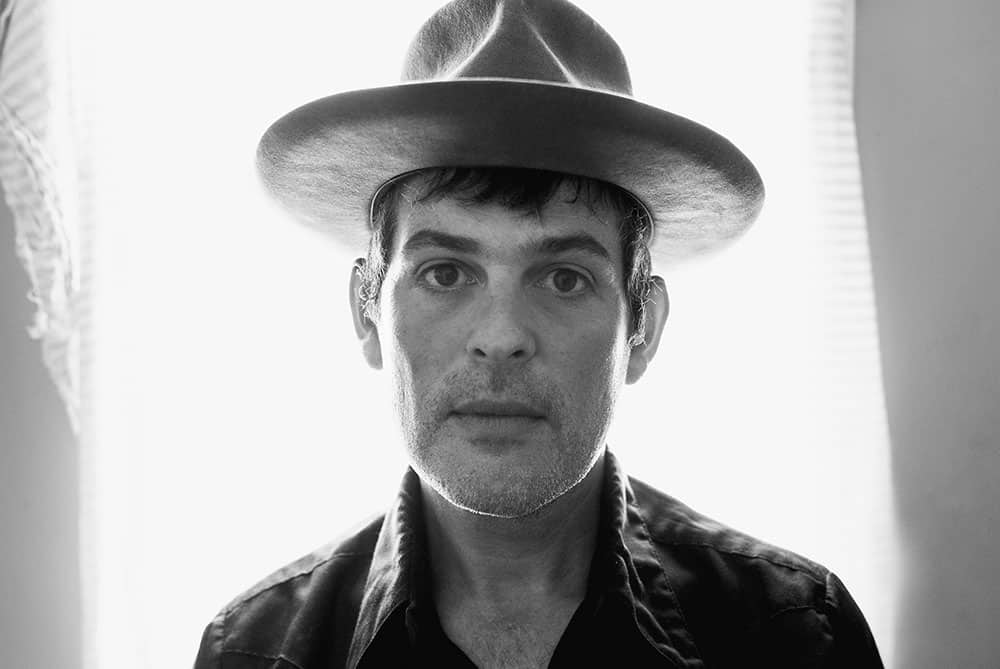
“I set out to make a record that was really bare bones,” says Gregory Alan Isakov in the press notes of his new album, Appaloosa Bones. “I wanted to go backward a little bit because Evening Machines (his previous album) was such a deep dive into arrangements. I wanted to have more of a raw experience with this one.”
Upon close inspection, it doesn’t seem like Isakov accomplished that mission. For all of its elegance and beauty, Appaloosa Bones seems a bit too lush and lovingly fussed with to be accurately described as “bare bones”. This isn’t to say this is a faulty record – it’s pretty spectacular – but anyone looking for a collection of songs written with just a voice and acoustic guitar will likely be taken aback by what they hear.
Isakov is a South African-born musician, now based outside of Boulder, Colorado, where he maintains a farm and helps grow produce for CSA members, local restaurants, and an area food bank. It’s on this property where his home studio is located and where Appaloosa Bones was conceived. Certainly, there are lovely country and folk touches dotted all around his music. But his somewhat dark, atmospheric arrangements are reminiscent of another low-key singer-songwriter, M. Ward, and his intelligent, eloquent songwriting seems to recall Josh Ritter (the latter a friend of Isakov’s, who he’s toured with extensively). Call Isakov the ultimate antithesis to boneheaded bro-country, if you will.
Appaloosa Bones begins with the moody, cinematic, slow-burning “The Fall”, filled with cavernous reverb, banjos intertwining with piano, and Isakov’s deep voice, which takes on an almost spiritual quality. “We all break a little when we fall,” he sings. “And everybody keeps saying, get up.” It’s a heavy way to kick off an album, but it goes a long way in establishing Isakov’s talents from the beginning. Things get a bit more grounded with “Before the Sun”, as strumming banjo and droning fiddle usher in the simple, uncomplicated travelogue: “I’ll go it on my own / Sand city bus / Kicking up dust / Before the sun comes up.”
The title track sticks closer to Isakov’s stated intentions of a bare-bones record – at least at first – with acoustic guitar driving the song, helped along with swelling accordion (or is it strings?), fuzzy, lo-fi drums, and Isakov’s soaring vocals in the chorus. In the same vein, “Terlingua” begins with the sound of Isakov walking over to the piano bench, singing along to the song’s simple chords before the gospel-flavored arrangement moves in. Isakov could very easily make an outstanding “unplugged”-style album with just his voice, guitar, and piano, but his penchant for adding eloquent touches that move beyond a sparse style is too much of a temptation for him – and again, this is perfectly fine, since he’s so good at that type of execution.
Other highlights include the simple, waltz-tempo of “Mistakes”, where understated strings and Isakov’s brief falsetto give the song appropriate gravitas; the lilting, campfire vibe of “Watchman”, which will likely inspire singalongs in live performances; and the playful “One Day”, which retains an intimate, comforting “demo” feel.
Closing out Appaloosa Bones is “Feed Your Horses”, which, like a lot of this gorgeous record, has an elegant, spiritual feel, as the lazy tempo and country leanings seem to evoke the Band, and the poetic lyrics recall the works of Isakov’s pal Josh Ritter: “Your crooked heart has left you to roam,” Isakov sings, “Looking for love, you forget to come home / I’ll wait for you darling, like grain in the ground / I’ll feed your horses when you go into town.” Gregory Alan Isakov hasn’t reinvented the wheel – his style has been implemented by plenty of artists before and currently – but as Appaloosa Bones proves, few artists can do it as well as him.

